Lesson of Ashura
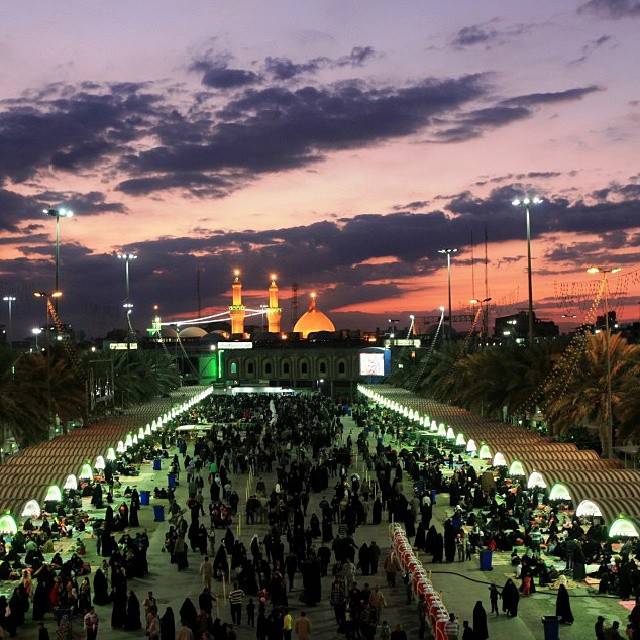
Ayatollah Khameniei
“People must appreciate mourning ceremonies for Imam Hussein’s (Peace Be upon Him) martyrdom in order to create a spiritual connection to Imam Hussein (Peace Be upon Him), family of the Prophet (Peace Be upon Him), Islam and the Holy Qur’an.”
(6th June 1994)
Karbala Imam Hussein (pbuh)
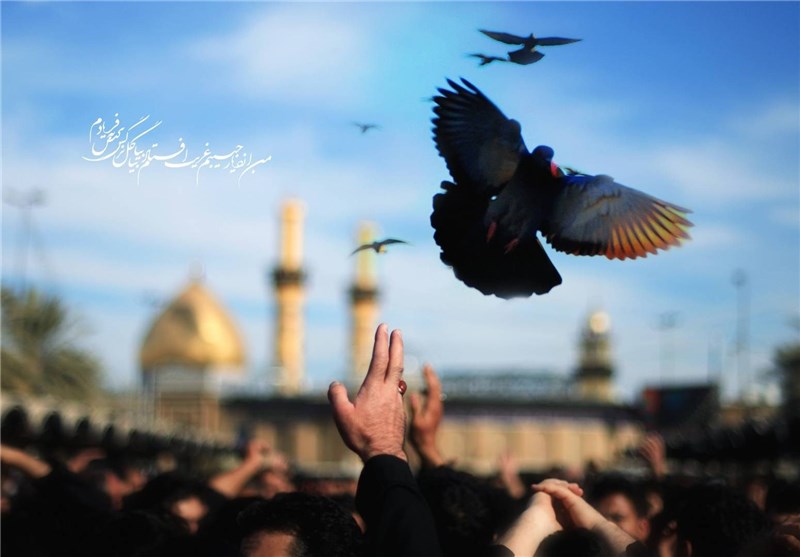
karbala
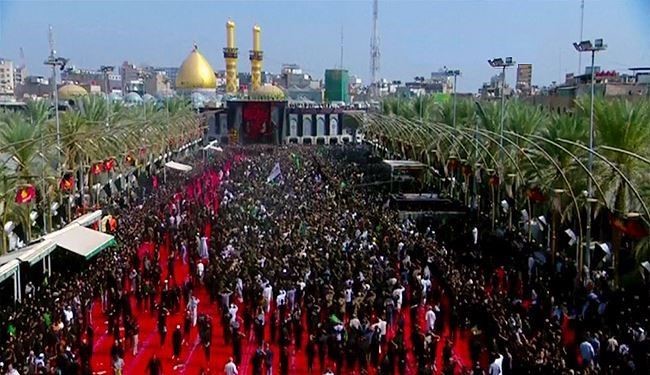
On Ashura day, people mourn in Karbala
What was the role of women in Karbala ?
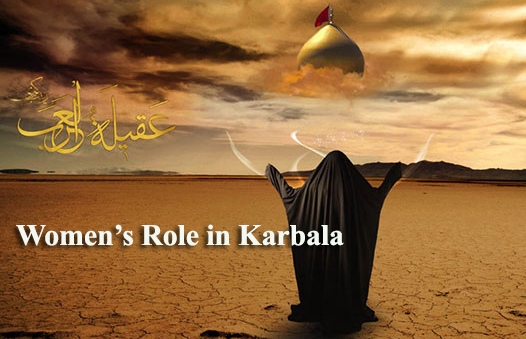
An article by the pure Elweiah , the martyred Bint Alhuda
What a fabulous meeting which gathered us during this days of Muharram with the greatest Islamic disaster, returning its everlasting memories inside us, Muslims!, glorifying its eternity which raising through all ages, and following its heroic, wonderful events to learn from it the highest means of struggles which has been represented with glorious sky lights, generous with spiritual examples, full of all the meanings of good, which were represented on that day of Altaf in Ashura.
That day, which is still and remained as a good lesson in the heart of Muslims, shinning page in Islamic history, an incandescent torch which separating high glories and the right faith, and a clear path towards spiritual immortality and the remains of the immaterial morals.
Lesson of Ashura
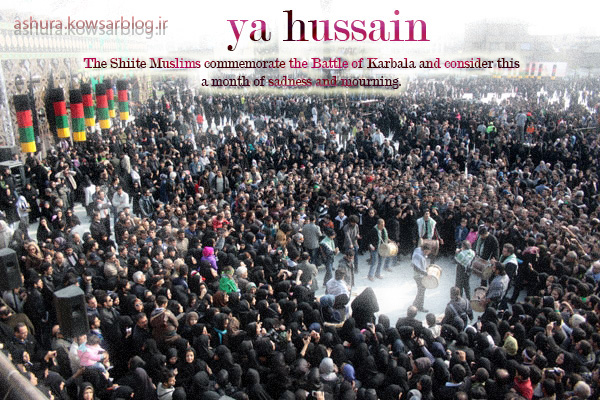
Ayatollah Khameniei
“The lesson that we can learn from Imam Hussein (Peace Be upon Him), is the fact that we have to get ourselves ready for justice and Jihad with all your strength all the time and that is a hard work but we have to try to do this as far as we can.”
(11th July 2013)
Who was Imam Hussein?

Our praise be upon the running blood of martyrs, cut organs of bodies! Those heads on the spears! Those women taken out of the tents! Our praise be upon the proof of the God of the worlds, Hossein ibn Ali and his pure fathers! The supporters of God’s faith!
The Story of Karbala and Imam Hossein, Narrated by Four Infallible Imams
Imam Hassan Mojtaba
Before Imam Hassan’s martyrdom, Imam Hossein looked at his brother’s face and cried. Imam Hassan asked: “why are you crying?” he said: “I’m crying for the difficulties you underwent” Imam Hassan said: “my difficulty is the poison that kills me! But nothing is as sad as the day of your martyrdom.”
Imam Ali
Imam Ali was sitting in the mosque and all his companions surrounded him. Then Imam Hossein entered the mosque. Imam Ali addressed him and said: “I swear God that you will be killed and then all the earth and the sky would cry for you”
Who was Hazrat Qasim and how was Martyr
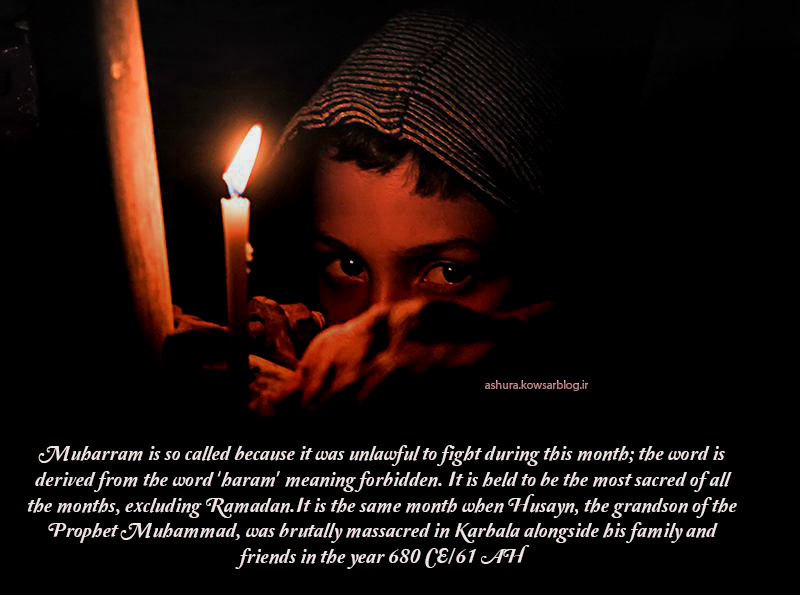
Our praise be upon Ghasem, the son of Hasan ibn Ali! The one that has been wounded and his military tools have been plundered! When he beckoned his uncle, Hossein, he hurried towards him just like a quick-winged eagle. He scattered people around him and got closer to him. When Hossein got to him, he was walking lamely (because of the wounds). Hossein said: “may God not have mercy on those who killed you! They are the same people that your father and grandfather would be hostile towards them in the Day of Judgment!” Then, he said: “I swear to God that it is so intolerable for your uncle to be beckoned by you and not answer you while you have been martyred or wounded.”
The Last Day, Ashura, Karbala
1. Asking for Permission to Enter the Battlefield
When all the companions were martyred, it was Imam Mojtaba’s son’s turn! Hazrat Ghasem talked to Imam Hossein and said: “O Uncle! I’ve come to ask your permission to go!”
2. The Uncle’s Rejection of the Plea
Imam Hossein said: “O my nephew! You are my brother’s memorabile! Stay! Don’t enter the battlefield! Your presence consolidates me!”
3. Imam Hassan Mojtaba’s Will
O my son! Whenever you saw your uncle in Karbala, don’t ever quit fighting the enemies of God and the Prophet! If your uncle didn’t let you to enter the battlefield, persist in your request!
4. The Uncle’s Permission
Hazrat Ghasem presented the will to Imam Hossein. When Imam saw the will, he hugged Ghasem to bid farewell to him.
5. Entering the Battlefield
Imam Hossein clothed Imam Mojtaba in his ghaba and then put Hassan’s turban on Ghasem’s head and sent him to the battlefield.
Hazrat Ghasem’s Biography